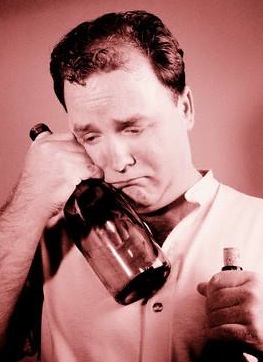
Alcohol is a common coping partner in times of distress, but a new behavioral study confirms what common sense assumes: the act of drinking to self-medicate is an inherited trait that does not amount to effective treatment for depression and more often complicates pre-existing mental health issues.
Researchers at the University of Southern California Los Angeles sought to explore both the genetic roots and real-world effects of this distressingly common behavior by drawing data from a group of more than 5,000 adults participating in the Virginia Adult Twin Study of Psychiatric and Substance Use Disorders. Subjects completed detailed personal surveys outlining lifetime histories of depression, alcohol dependence or abuse, and mood-related drinking motives.
The survey’s results were predictably discouraging: much like alcoholism itself, the predisposition toward mood-based drinking is largely a genetic phenomenon. Researchers noted very similar patterns in twins with previous family histories of alcoholism and depression. They also found gender to play a large role, noting that males are considerably more likely to use drink in this misguided and ultimately self-destructive way.
Most importantly, mood-related motives were the variable that most accurately predicted both disorders. Individuals who drank in order to medicate their moods were considerably more likely than all other subjects to be both depressed and alcoholic. It would seem that this drinking-as-medication habit serves as the missing link between chronic mental illness and a dependence on alcohol. One who is driven to drink in order to satiate their dramatic moods is more likely to develop a serious addiction to alcohol. This addiction then intensifies their desire to use alcohol as an unsolicited medicine. And the cycle continues.
Drinking to buoy low moods is never a good idea. And anyone for whom emotional problems become the primary motivation for drinking should very carefully examine their decisions and determine the depth of their dependence before professional help becomes a necessity.